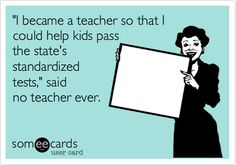I think that Westheimer paints a very negative portrait of teaching engaged citizens. He goes on for 10 chapters stating how the current atmosphere only focuses on Math, Literature, and standardized testing. In the very last paragraph of the book he eludes to the “pockets of success” that are doing it right, according to him. I am not disagreeing that the focus on numeracy and literacy is skewed higher than the other subjects, but I do not believe that citizenship is being ignored completely even in those areas. I do not necessarily agree that the we are in need of a curriculum reform in Saskatchewan, but I do think that there are some teachers out there who need reform. Almost the entire curriculum was redone in 2009 and reading through the outcomes and indicators of all subjects, not just Social Studies, have incorporated socially responsible aspects.

I think it has to be up to the teacher to incorporate engaged citizenship into their lessons. The curriculum gives us the option, for example in English Language Arts Outcome CR6.1 we are asked to teach students to view, read, listen to, comprehend, and respond to a variety of texts that address identity, social responsibility, and efficacy. I think it would be a perfect spot to talk about citizenship. Social Studies is an obvious place to incorporate teaching engaged citizenship. Examining the impact of human habitation on the natural environment (DR7.2), investigating the influence of resources upon economic conditions on peoples (RW7.2), and investigating the structures and processes of democratic government in Canada (PA7.2) are outcomes in which you could talk about being green and the impact of carbon footprints, poverty cycles, and being politically active respectively. These all come from one grade level. The curriculum is there to teach engaged citizens, but it is up to the teacher to make the decision to teach it.

Personally, I appreciate Westheimer’s trio of the Personally Responsible/Participatory/Social-Justice Oriented Citizen. However, the way he depicts it seems like a person can only be one of the three and that one is better than the other that is better than the last one. I disagree with this interpretation. I think that a person can be any combination of the three and that our world would not function without some of all of them. If we only had a bunch of Social-Justice Oriented citizens, we would have a ton of people researching why people are homeless or hungry, but no one organizing the food drives or making donations. In my class I would like to think that I would promote all three. I think we need to teach students to think critically about the issues our world is facing. Whether it be climate change, poverty, the missing and murdered Aboriginal women in Canada, or taking advantage of the right we have to vote for our leaders, students should think about the why, how, and what now. I do not think that students necessarily need to be taught directly about Westheimer’s Trio, but they should know that there are different options for the way to respond to the world. For example, in one of the examples mentioned above (DR7.2) when students are taught about the impact of humans habitation on the environment, they should be given the options for responding to it. Students should know that they can make a difference by reducing their carbon footprint by carpooling or walking/biking to school, by organizing rallies to promote the issue to other people, or by designing a new affordable way for cars to run. Each option is important, and each is easily worked into the curriculum if you make the effort.
Jen
